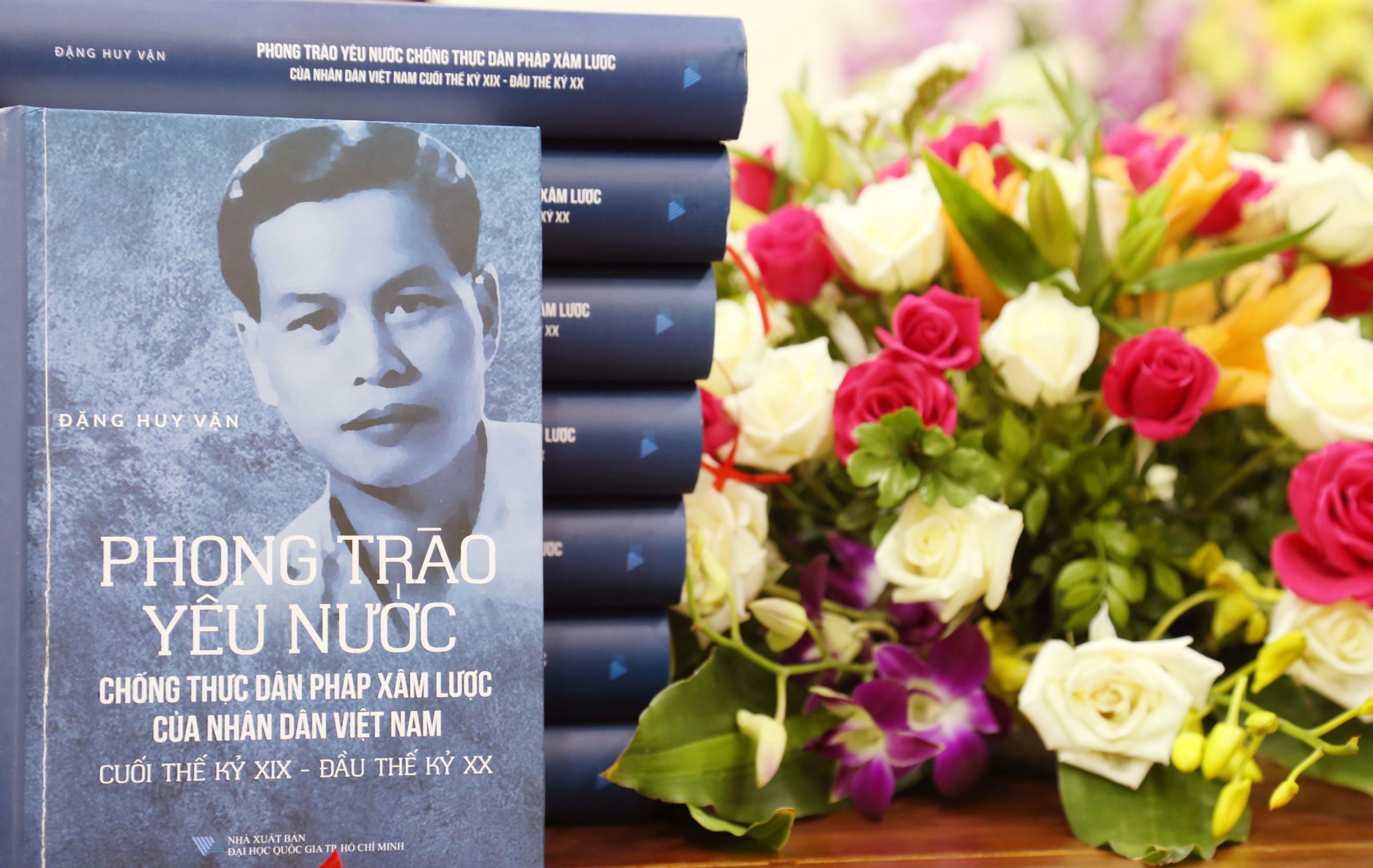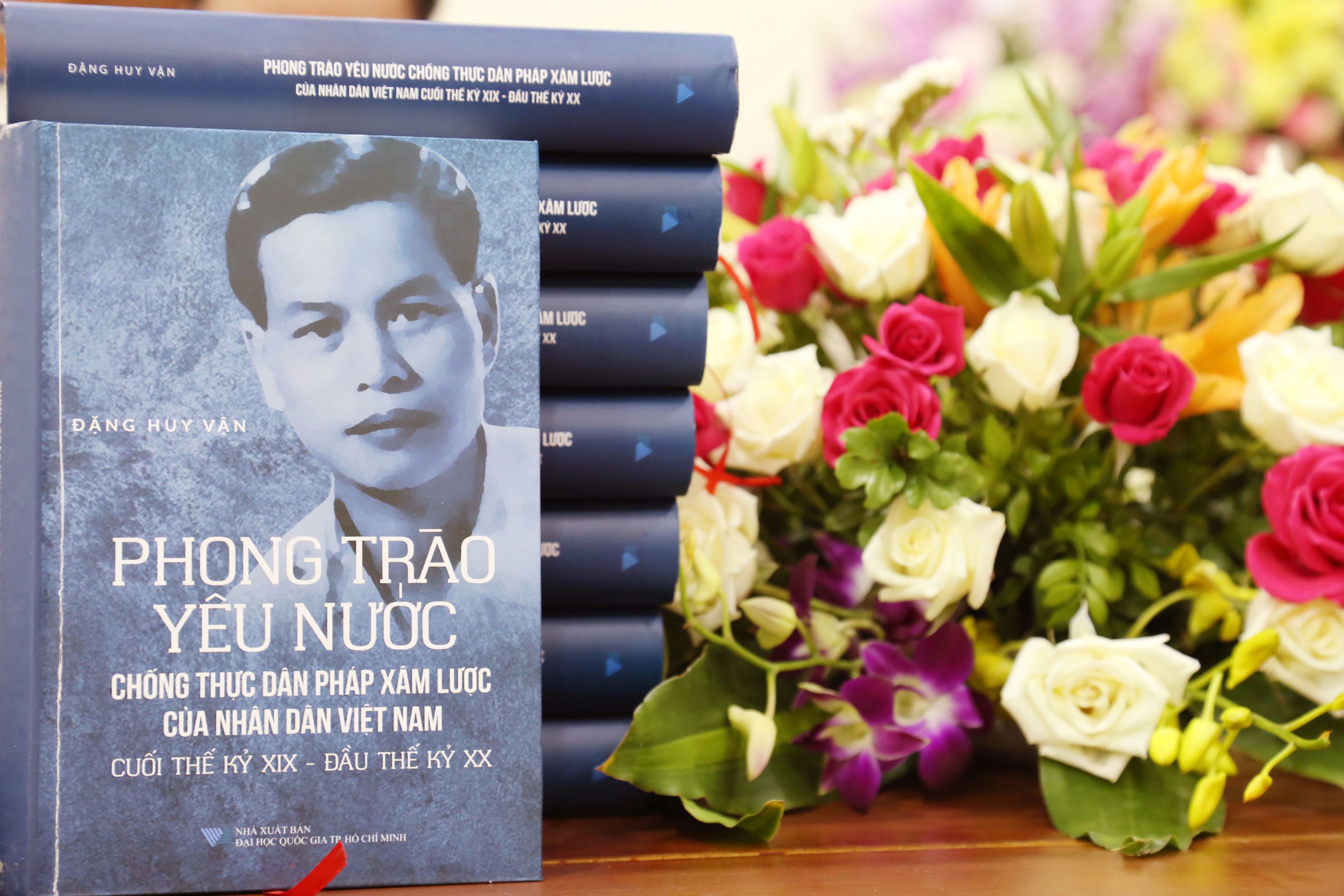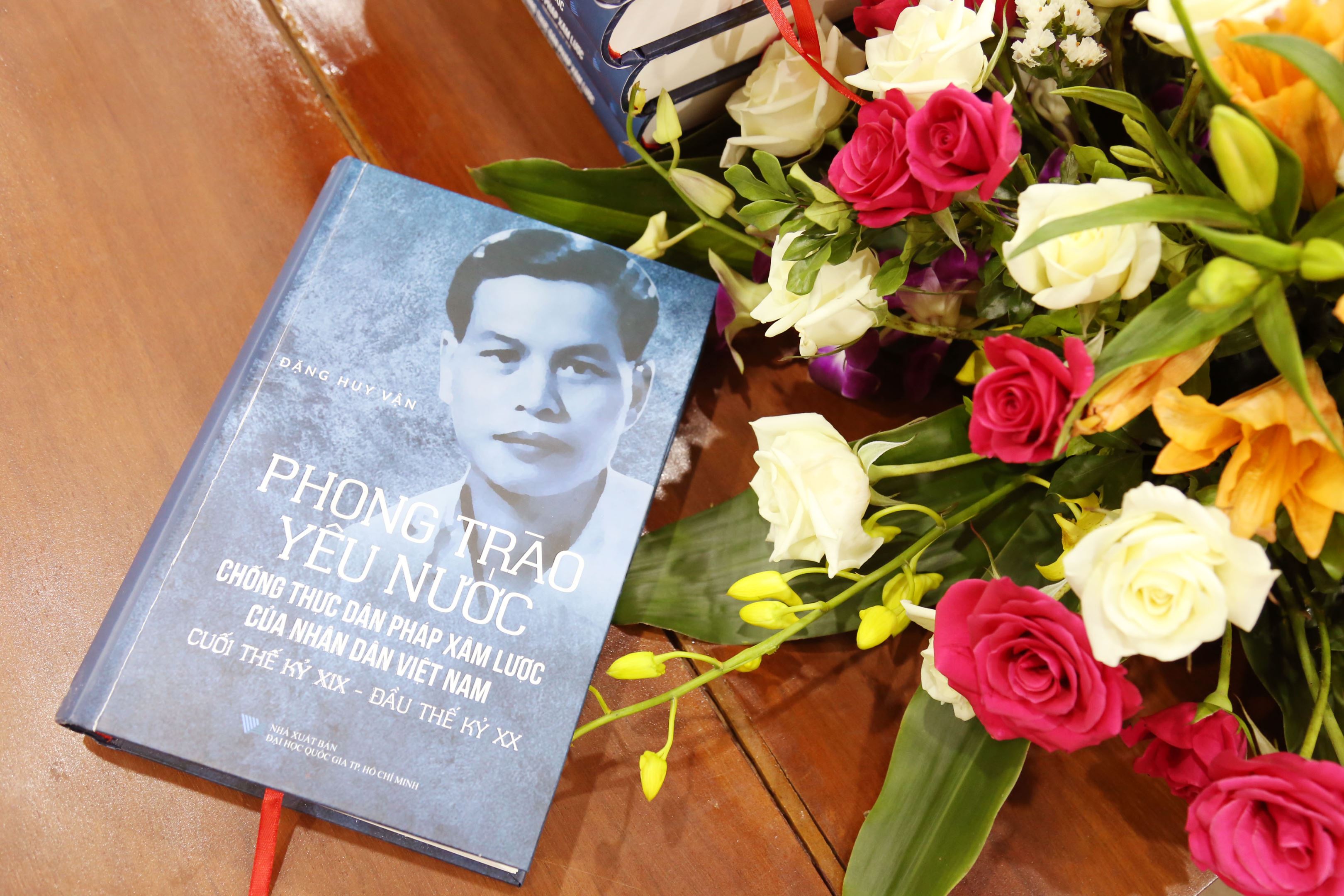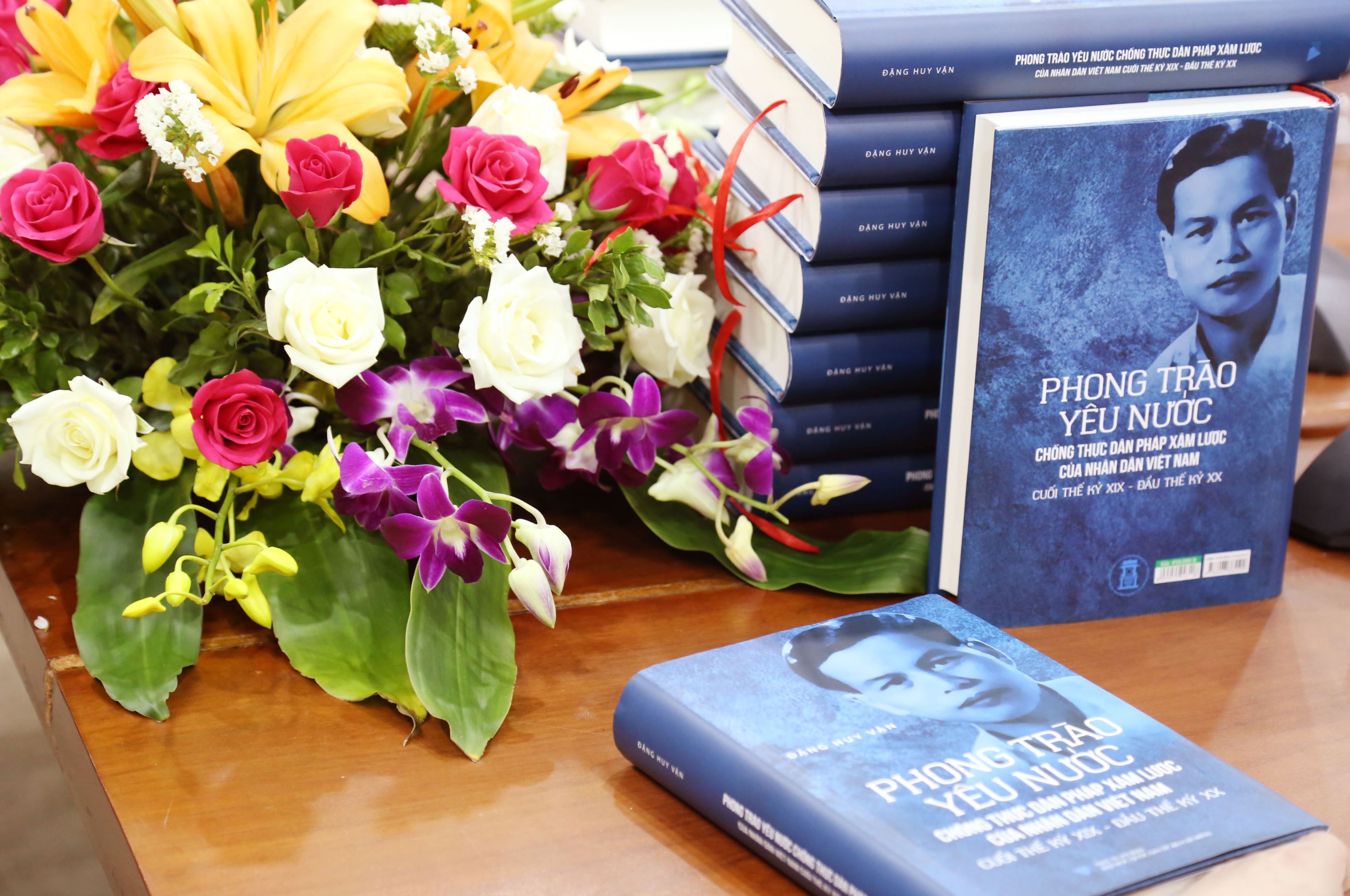
The book gathers more than 30 research articles written by teacher and historian Dang Huy Van, or co-written with a number of colleagues who are historians and famous teachers of a prestigious training unit - Department of Modern Vietnamese History, Faculty of History, Hanoi University of Science and other units: Dinh Xuan Lam, Chu Thien, Chuong Thau, Nguyen Phan Quang, Hoang Van Lan, Bui Van Chep, Hoang Dinh Binh, Nguyen Dang Duy, Le Ngoc Dong... These research works were all completed in the 60s of the 20th century, in which, many articles were written in the mountains of Dai Tu, Thai Nguyen, under the light of oil lamps in the evacuation area during the war against American imperialism with countless shortages, difficulties and hardships.

During his lifetime, with a passion for research and creation, researcher Dang Huy Van was interested in many issues of the country's modern history. He wrote a number of monographs on the following issues:Periodization of modern Vietnamese history, Quoc Ngu script, class struggle situation during Gia Long period, labor and military service system during Gia Long period...;participated in compiling a number of major scientific works: textbooksModern History of Vietnam,Patriotic poetry and literature in the second half of the 19th century (1858-1900),Nguyen Truong To's reform proposals,From Ba Dinh to Hung Linh,... But the topic he is most interested in and spends most of his time researching is...patriotic movement of our people against French colonial invasion in the late 19th and early 20th centuries.
This is not a random, arbitrary choice, but the pursuit of a purpose in life, a creative purpose of a patriotic intellectual who always worships morality: the rise and fall of the nation, the responsible scholar. In the 60s of the 20th century, our people's resistance war against the invading American imperialists took place increasingly fiercely; American expeditionary troops poured into the South, conducting a local war; American planes frantically bombed and destroyed the North. The patriotic intellectual and historian Dang Huy Van wanted to use history to serve the great resistance war to save the nation; wanted to take the heroic, indomitable tradition of our ancestors in the years of fighting against the invading French colonialists in the late 19th and early 20th centuries as aThe sacred fire ignited and fueled the nation's indomitable spirit.in the survival struggle with the imperialist, belligerent forces for independence, freedom, and national unity. His desire is consistently expressed in more than 30 articles printed in this monograph and that is the consistent thought, the main inspiration, and the outstanding purpose of the book.

The book consists of four parts focusing on three major issues: the struggle between the two factions of "war" and "peace" revolving around the choice of path and solution to deal with the invasion of French colonialism; the extensive and heroic struggles of our people against the invasion war of French colonialism in the late 19th and early 20th centuries; identifying and evaluating a number of contemporary historical figures who still have gaps in perception or different opinions. Approaching these three issues, with more than 30 articles collected in the book, it has comprehensively covered important issues of modern history, the period before the birth of the Communist Party of Vietnam in February 1930, helping readers to visualize the basic outlines of a special historical period of the nation in modern times.

As always, whenever the Fatherland is in danger from foreign invasion, there is a division within the ruling class in choosing how to respond: to fight to protect national independence or to compromise, make concessions, and surrender. The victory or defeat in the internal struggle of the ruling class greatly affects the fate of the country. In this book, using historical documents and scientific explanations, researcher Dang Huy Van has realistically outlined the struggle between the "peace" factions with different perceptions and motives, but in general, they are all concerned about the overwhelming power of French colonialism, represented by the Nguyen Dynasty kings and some close mandarins, and the "war" faction, represented by patriotic, upright mandarins who always believe in the strength of the people and in the heroic tradition of the nation. From a comprehensive analysis of the country's historical reality in the second half of the 19th century, the author has drawn profound conclusions. He emphasized that when the feudal court clearly revealed its weak and reactionary nature, going against the national interests and the people's aspirations,To fight against the French colonial invasion, one must fight against the surrendering court; the struggle against the surrendering court and the oppression and exploitation of the people was a part of the resistance war to save the country at the end of the 19th century.
In the book of more than 600 pages, the largest part is the articles about the patriotic movement, against the French of our people. In the situation of the country being temporarily divided, without conditions to survey and deeply research the history of the anti-French resistance in the southern provinces, author Dang Huy Van, using new sources of documents, focused on presenting in detail and vividly the armed activities, uprisings, and anti-French movements that took place continuously and fiercely in the northern region, from the central provinces to the plains, midlands, and mountainous provinces. He paid special attention to describing and promoting the indomitable and heroic fighting spirit of the insurgents, the loyal examples of the scholars full of enthusiasm for saving the country; The efforts to unite and coordinate in fighting, even though still spontaneous, between patriotic forces in the lowlands and highlands, between ethnic groups and religions, between patriotic Vietnamese scholars and those with anti-French spirit in the Qing Dynasty court... Under his pen, the anti-French movement of our people took place vigorously and strongly.Wherever there are footprints of invasion, there is resistance; fight here, respond there, one wave has calmed, another wave has arisen, there is not a day without fighting. He commented that the heroic and resilient fighting spirit of our people cannot be subdued by any force based on modern science and technology, and although the movement temporarily subsided, it flared up again, more vigorously in the direction of innovation, integrating with the general development of the national movement at the beginning of the 20th century.
In the book, researcher Dang Huy Van devoted a number of articles to analyze and clarify the contributions and limitations of a number of historical figures whose lives and careers were closely linked to the ups and downs and conflicts of a tragic, complex, and turning-point historical period. Thoroughly grasping a specific historical perspective, he determined:It is necessary to consider historical figures in the context in which they lived and worked, to consider the motives for those activities and other aspects of their entire lives, and to clearly recognize the objective limitations of class and historical era...so as not to fall into simplicity and dogmatism. With a scientific approach, in his articles, he made objective comments and assessments about Luu Vinh Phuc and the Black Flag Army; about Phan Thanh Gian, Truong Vinh Ky, A. de Rhodes, Le Van Duyet; about Nguyen Truong To's reform proposals; about Phan Boi Chau's contributions in mobilizing Catholic compatriots and his historical concept; about Phan Chau Trinh's democratic ideology.
Over the past 50 years, the country's historical science has made great strides. Vietnam's modern history has been studied more comprehensively and completely; many issues and historical figures have been clarified on the basis of new sources of information and approaches. Among those achievements, there are positive contributions in many aspects of researcher Dang Huy Van. Through his works, the personality of a true historian and a very unique historical style - Dang Huy Van's style - shines forth.
On February 22, 1969, family, colleagues, and students sadly and regretfully said goodbye to the respected teacher and historian Dang Huy Van. Sending him off to the eternal world, teacher and literary researcher Hoang Nhu Mai wrote touching verses about his life and noble personality:
A backpack, a stack of manuscripts
Ten articles written but not yet published…
…Hungry or full, lacking or not complaining
The common prayer is to devote all one's heart and soul.
Very little for private life…
…Honest work, pure heart
Live simply and die simply[1]
Studying the articles in the book, readers not only feel and appreciate the dedication of the historian who devoted his life to serving the country and the people, regardless of fame or profit, but also clearly see the serious working style, talented writing style and highly respectable scientific attitude. To write a thesis, researcher Dang Huy Van always devoted his efforts to finding new historical documents from many sources: documents of the Hue court, Chinese documents of the Qing court, French documents of the colonial government, field survey documents and cultural and literary documents still preserved among the people. From rich and diverse sources of documents, he revived the history of the resistance movement against French colonialism of our people during the bloody half of the 19th century. Under his pen, history appears not monotonous, dry, boring but lively, colorful, full of attraction, from moats, bamboo fences, banyan trees, communal house roofs on resistance bases to portraits of heroes, righteous men, to the specific and detailed developments of each battle... In some articles, he exchanged, discussed, and debated with a number of other researchers about documents, arguments, comments, and assessments of historical events and figures. His opinions were always gentle, humble, and convincing because of the cultural character, the cultural quality that was his personality value. Years have passed, but the personality of the patriotic and revolutionary intellectual Dang Huy Van and his historical style still live on.
The author of the introduction to this book was a student of Mr. Dang Huy Van in the late 60s of the 20th century, a person who was attached to, respected, and admired the teacher with the teacher-student relationship and the deep sentiment of his homeland. On the occasion of the 50th anniversary of the teacher's passing, I would like to use these pages to pay my respects to the teacher. I would like to respectfully introduce the book to readers near and far. I hope that the book will inspire and ignite the fire in you, especially those who study history, love history, and have the desire to devote their lives to the profession of teaching and researching history.
[1]The italicized words are the original quotes used in the articles of researcher Dang Huy Van in this book.
Author:Professor, Dr. Phung Huu Phu
Newer news
Older news